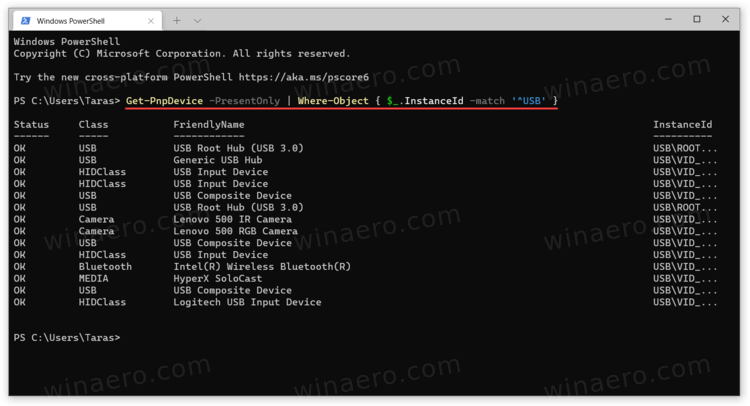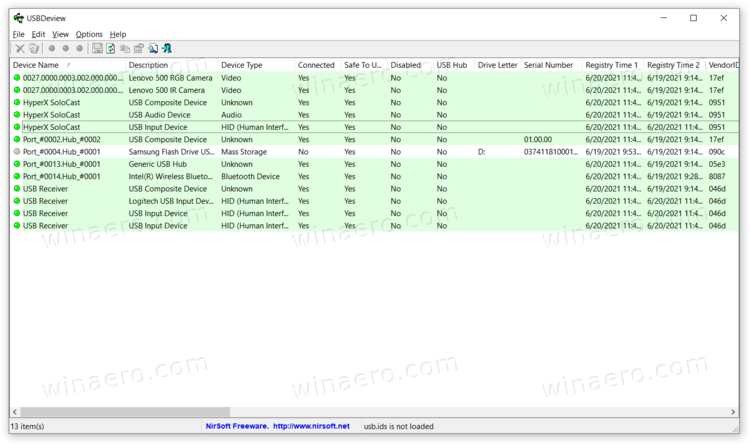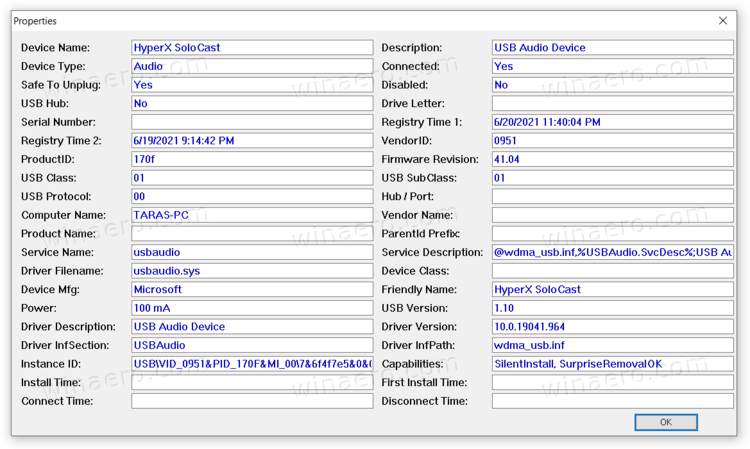You can find and list all connected USB devices in Windows 10 using any of the methods reviewed in this post. We will see how it can be done with and without third-party tools.
Advertisеment
It is a well-known fact that when the user wants to manage devices connected to his Windows computer, they need to go to Device Manager. That may not be the case if you need to find the list of all USB devices connected to your PC. Device Manager in Windows does quite a poor job showing that list without the ability to copy or save it. Also, its default view needs to be changed.
Finding all the connected USB devices in Windows 10 is a relatively simple process. You can use one of the many free third-party tools or a single command in PowerShell or Windows Terminal. Here is how to find a list of all connected USB devices in Windows 10.
Tip: You can use this article with other Windows versions, such as Windows 8, Windows 7, or even the upcoming Windows 11.
Find and List Connected USB Devices in Windows 10
- Launch PowerShell or Windows Terminal with the 'PowerShell' profile. Either of those will do the job for you.
- Enter the following command:
Get-PnpDevice -PresentOnly | Where-Object { $_.InstanceId -match '^USB' }.
- That command will show a list of all present USB devices.
"Status OK" means that a device is currently plugged in and works properly. You can also use the Class and Friendly Name columns to find and better recognize the devices you see listed.
Find all connected USB devices with USBDeview
If you need a bit more information about your USB devices, there is a free utility called USBDeview by Nirsoft. You can download it from the official website using this link. Launch the file you have downloaded (the app does not require installation.)

Now you can see a complete list of all USB devices connected to your Windows computer. The app marks currently active devices green, so you can easily sort out disconnected peripherals. You can also double-click any entry to reveal additional information: first connection time, recent connection time, vendor, friendly name, power consumption, USB protocol, driver version, etc.

In addition to providing you with all the available information about your USB devices, USBDeview offers some advanced features. For example, you can prevent connecting specific devices to your computer, browse INF files, jump to registry entries, restart USB controllers, etc.
USBDriveLog
Finally, the same developer offers a slightly less complex tool that only shows USB Mass Storage Devices. It is called USBDriveLog, and you can download it from the official website using this link.
Support us
Winaero greatly relies on your support. You can help the site keep bringing you interesting and useful content and software by using these options:

Why everything has been changed? How can I find my USB on G: or D: in my computer? I try to save my file on it for my CPA.
A good start, but how can I access the files on a USB device (in my case, Kindle or Amazon Fire HD 10)?